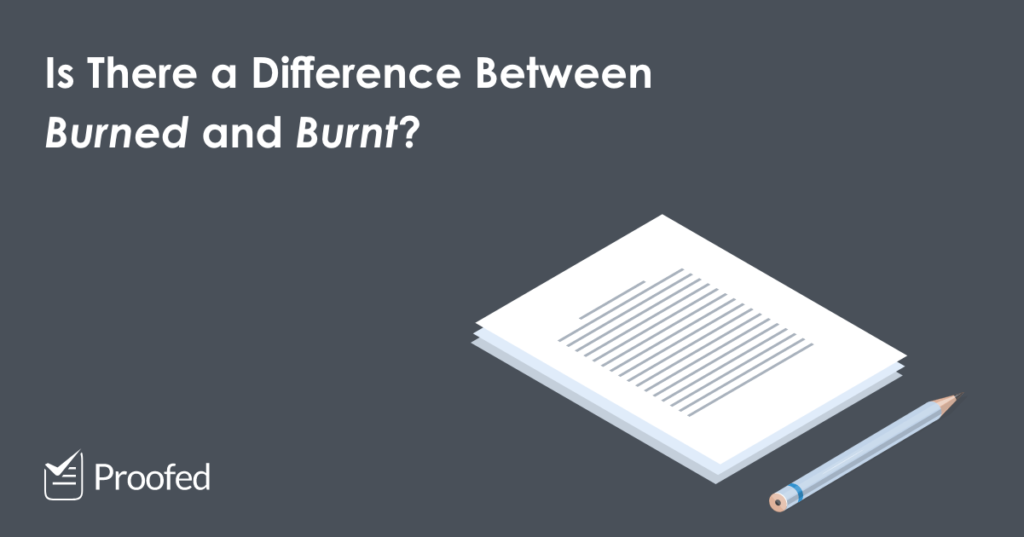“Burned” and “burnt” differ in spelling, but do they differ in meaning? The answer may depend on where you’re from, but in American English:
- Burned is a simple past tense and past participle verb.
- Burnt is usually an adjective.
However, this isn’t always true, especially outside North America. So, to make sure your writing is always error free, check out our guide to these terms, plus a few more verbs that can end “-ed” or “-t.”
Burned (Verb) vs. Burnt (Adjective)
In American and Canadian English, “burned” is the simple past tense or past participle of “burn.” For example, we could say:
The log burned in the fireplace.
We have burned all the logs.
“Burnt,” meanwhile, is almost always an adjective, so it modifies a noun:
Burnt toast tastes bitter.
In American English, then, it is easy to remember the difference. Outside North America, however, things get more complicated.
“Burnt” in Other English Dialects
In British and Australian English, “burned” and “burnt” are both used as past tense verbs. As such, we could rewrite the sentences above as follows:
Find this useful?
Subscribe to our newsletter and get writing tips from our editors straight to your inbox.
The log burnt in the fireplace. ✓
We have burnt all the logs. ✓
The correct spelling is, ultimately, a matter of preference. Technically, the same is true in American English, so you will find “burnt” listed as a verb in some dictionaries. However, in the US, using this spelling as a verb could seem old-fashioned. As such, you are usually better off using “burned.”
Other Verbs that Can End “-ed” or “-t”
Other words that can end either “-ed” or “-t” include:
- Dreamed / Dreamt
- Kneeled / Knelt
- Leaped / Leapt
- Leaned / Leant
- Learned / Learnt
- Smelled / Smelt
- Spelled / Spelt
- Spilled / Spilt
- Spoiled / Spoilt
Like with “burned/burnt,” the words above can end in either “-ed” or “-t.” But there are some conventions and restrictions that apply here, too:
- The “-ed” forms are more common, especially in American English.
- You should use each form consistently in your writing.
- The “-t” forms are more common as adjectives (e.g., spilt milk) than as verbs, but most of the words above favor in the “-ed” endings in all cases.
- “Learned” is also a distinct adjective meaning “well educated.”
We hope this helps! And if you need any more assistance with the spelling in a document, we have proofreaders available 24/7.



